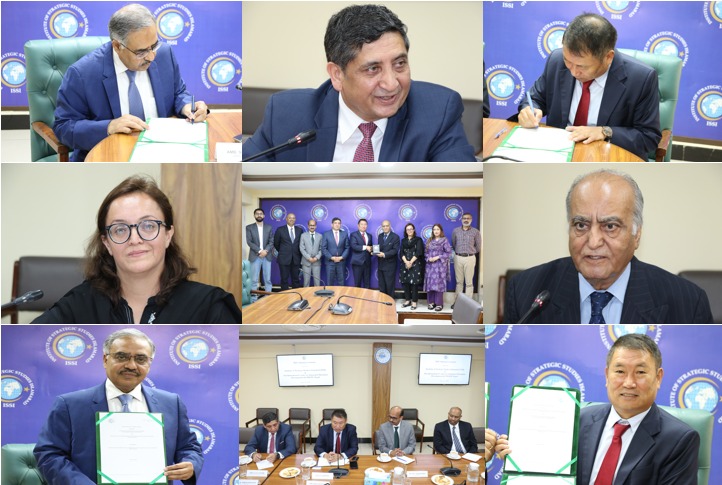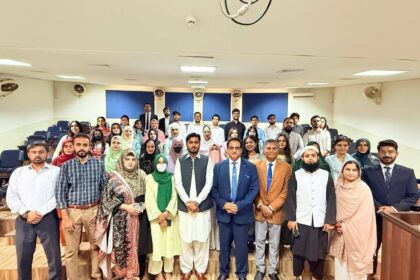**ISSI and ICIMOD Forge Partnership to Combat Climate-Induced Disasters in the Hindu Kush Himalaya Region**
The Institute of Strategic Studies Islamabad (ISSI) and Nepal-based International Centre for Integrated Mountain Development (ICIMOD) have entered into a research collaboration aimed at strengthening regional responses to climate-induced disasters across the Hindu Kush Himalaya (HKH) region. The strategic partnership was formalized with the signing of a Memorandum of Understanding (MoU), recognizing the urgent need for cross-border cooperation on climate change issues affecting multiple countries in South and Central Asia.
The MoU was officially signed by Ambassador Sohail Mahmood, Director General of ISSI, and Dr. Pema Gyamtsho, Director General of ICIMOD, in the presence of Pakistan’s Ambassador to Nepal, Abrar H Hashmi, as well as senior representatives from both organizations. The partnership signifies a continued commitment from both institutions to address rapidly escalating environmental challenges in the HKH region, which encompasses Afghanistan, Bangladesh, Bhutan, China, India, Myanmar, Nepal, and Pakistan.
Preceding the formal agreement, ISSI’s Centre for Strategic Perspectives held a comprehensive discussion session with Dr. Gyamtsho, focusing on identifying shared research priorities and exploring opportunities for institutional synergy. Both sides exchanged views on the major climate risks confronting the region, highlighting the importance of collaborative approaches to research and policy development. The dialogue reaffirmed the alignment between ISSI’s strategic focus and ICIMOD’s mission of regional cooperation for climate resilience.
The discussions underscored the severe and growing impacts of climate change in the region, such as glacial lake outburst floods (GLOFs), worsening air pollution, and degradation of the Indus river basin. Participants acknowledged that tackling these transboundary challenges requires enhanced institutional capacity, robust knowledge-sharing, and the establishment of reliable data exchange mechanisms.
As part of their collaborative framework, ISSI and ICIMOD agreed to undertake joint research initiatives, facilitate policy dialogues, and implement capacity-building programs for climate risk mitigation. The partnership places a strong emphasis on inclusive engagement, advocating for the involvement of not only governments and research institutions but also civil society, academic networks, and regional stakeholders.
The meeting concluded with a consensus that a transboundary approach is essential, as climate and environmental threats do not adhere to political boundaries. Recommendations included integrating early warning systems, improving disaster preparedness, and adopting culturally sensitive preventive strategies within national and regional development plans. Both institutions expressed confidence that the renewed collaboration will play a critical role in fostering effective regional responses to climate-induced disasters in the HKH region.











